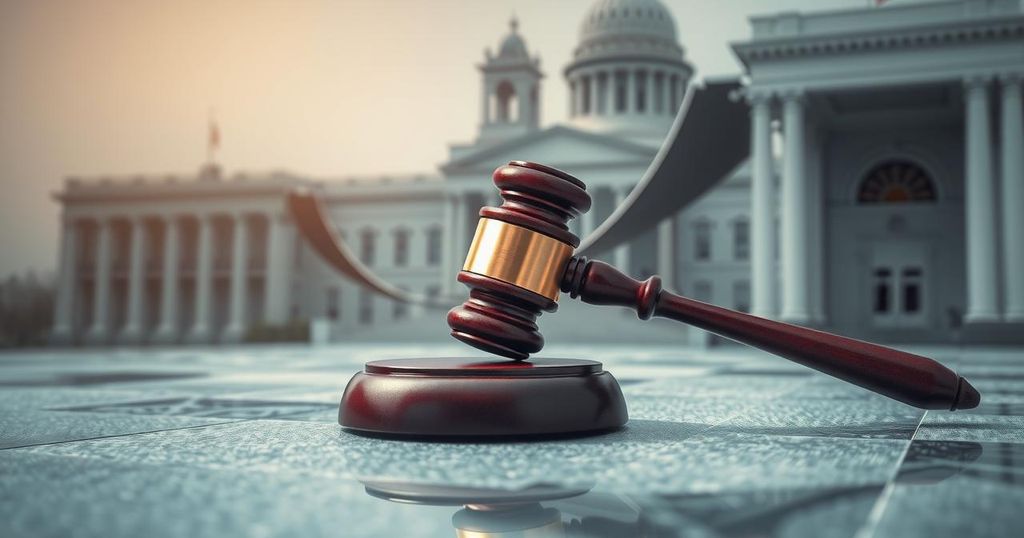Daniel Chapo was sworn in as president of Mozambique amid significant protests following allegations of electoral fraud in his recent election. Reports indicate over 300 deaths resulting from clashes between government forces and demonstrators. Chapo promised to prioritize stability and reduce government size, but opposition leader Venancio Mondlane urges continued protests against what he calls a fraudulent electoral process. The unrest represents a major challenge for Chapo’s administration.
Daniel Chapo, of Mozambique’s ruling Frelimo party, was inaugurated as president on Wednesday amidst ongoing protests over his contentious election win. The ceremony was attended by a sparse crowd, reflecting the unrest in the country. A civil society organization reports that over 300 individuals have died in confrontations with security forces since the poll on October 9, which was marked by accusations of electoral fraud from the opposition and concerns from Western observers regarding its fairness.
Despite these serious allegations, Frelimo has denied any wrongdoing in the electoral process. The party has maintained its grip on power in Mozambique since 1975, following the end of Portuguese colonial rule, and persevered through a devastating civil war that concluded in 1992 with a peace agreement. Chapo expressed his commitment to prioritizing both social and political stability during his presidency while addressing around 1,500 supporters in the capital, Maputo.
In his speech, Chapo pledged to streamline the government by decreasing the number of ministries, combat youth unemployment, and focus on improving health and education services. Observers noted that the city center was markedly quiet, despite a heavy presence of police and military forces on the streets. Cyril Ramaphosa, the president of South Africa, was among a limited number of heads of state present for Chapo’s inauguration.
Opposition leader Venancio Mondlane, who officially placed second in the election, recently returned from self-imposed exile and encouraged his supporters to persist in their protests. The extensive demonstrations that have unfolded post-election are deemed the most significant against Frelimo in Mozambique’s history, affecting foreign businesses and disrupting international trade. Many individuals have also been compelled to seek refuge in neighboring countries due to the ongoing conflicts.
Mozambique’s political climate has been tumultuous following the disputed presidential election that took place on October 9. The Frelimo party, which has held power since the end of colonial rule, faces significant accusations of electoral malpractice, leading to widespread protests. The civil society groups have reported high fatalities in clashes, indicating serious unrest and a potential crisis in governance. Daniel Chapo’s ascension to the presidency highlights the ongoing tensions between Frelimo and opposition factions as they navigate the aftermath of a contentious electoral process.
In summary, Daniel Chapo’s inauguration as president occurs against a backdrop of serious civil unrest following a disputed election. With over 300 deaths reported in protests against alleged electoral fraud, Mozambique faces a challenging political landscape. Chapo’s commitment to achieving social and political stability will be crucial as he attempts to quell dissent and lead the nation. The ongoing opposition protests reflect deep societal rifts and dissatisfaction with the current regime, complicating any path forward for governance in the country.
Original Source: www.foxnews.com






